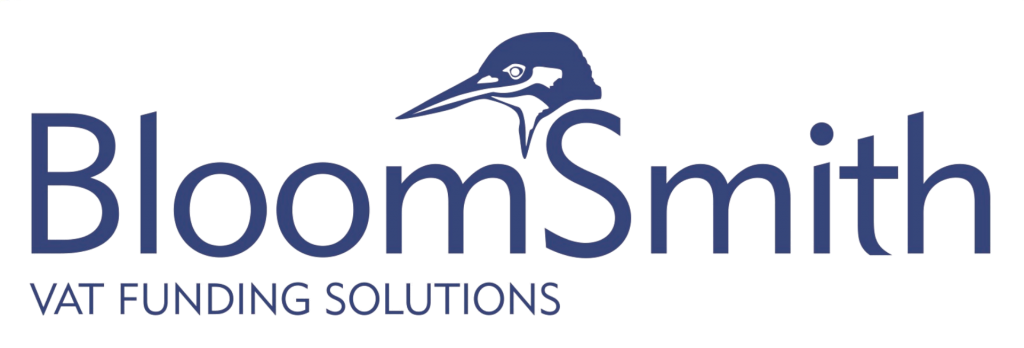This week, our sales director Kate Ashton was fortunate enough to present a webinar for The LandSite, exploring the role that VAT bridging loans can play in seizing opportunities within the commercial real estate sector.
2024 presents a complicated picture for many investors and developers within the UK’s property market but alongside the prominent challenges that arise from high interest rates and inflation comes substantial value opportunities within the sector.
This complementary blog post touches upon many of the key points that Kate discussed in her webinar, outlining how VAT funding can play a vital role in seizing opportunities and mitigating risks in a market beset by cash flow challenges.
A video for the webinar can be found at the bottom of the post.
The UK’s commercial real estate market has faced substantial obstacles over the past two years, following post-pandemic economic realignment and the fallout of former chancellor Kwasi Kwarteng’s much scrutinised ‘mini budget’.
The IMF estimates the economy will grow by 0.6% in 2024, making it the slowest growing developed nation amongst its members.
Growth prospects are being weighed down by the need to keep interest rates high to control inflation, which remains stubbornly above target despite reducing in recent months.
A series of 14 consecutive rises have seen interest rates rise to 5.25% in 2023, and it is predicted that rates could peak at 6%, and stay around 5%, until 2028.
This has put substantial cost pressures on borrowers and has had a direct impact on appetites for property purchases.
According to data from BNP Paribas, £18.5 billion was spent on UK Commercial Real Estate in H1 2023 – less than half the volume of the same period last year.
The bank expects total spend to reach £41bn this year – down a third on last year.
Although they do forecast a rise of 15% to £47 billion by the end of 2024, it remains well below the average for the past ten years.
Recent market volatility has seen the prices of commercial real estate tumble over the past 12 months – meaning the sector could present excellent medium to long-term investor value for businesses capable of getting new deals over the line in 2024.
At the fundamental level, inflation has had a huge impact on property investment opportunities because it has been a key driver behind the UK’s vastly increased interest rates over the past few years.
However, there are also many operational costs that are affected by inflation, such as having to absorb increases in rent, utilities, raw materials, and labour.
Because developers or investors may not be able to pass these costs on to customers in the short-term, they may find that their cash flow is impacted by these inflationary costs.
Uncertainty in the market, caused in part by inflation, may have led to developers doing less business than they otherwise might, which can also lead to tighter cash flow and cause decisions to be made on how they allocate their money.
This means that businesses may have less money at their disposal to allocate to their property investments and could be more likely to feel the pain of large sums of it being tied-up with HMRC for up to a third of a year.
Key to taking advantage of the opportunities that the market holds is the ability to overcome the cashflow challenges created by high interest rates and inflationary pressures, which can also be compounded by substantial VAT obligations against commercial property or land purchases.
This can often result in businesses having to pursue unwanted methods for completing deals, such as issuing new shareholder equity, eating into cash reserves and overdrafts, or having to re-open negotiations with senior lenders – exposing businesses to undesirable outcomes like equity losses, time delays and opportunity costs.
VAT bridging loans represent an innovative alternative funding source for managing short-term liquidity, keeping hold of your cash reserves, and completing purchases in a timely manner.
Our funding model means that customers can cover their VAT obligations for as little as 1.2% of their property’s purchase price.
Our streamlined processes also mean that you can see if you’re eligible for a loan in minutes, receive confirmation in an hour and funds within 48 hours.
Your loan is also refunded directly by HMRC, thereby drastically reducing the amount of time and administrative burden taken on by your company.
Research from the British Business Bank suggests that an appetite for external financing is slowly returning across 2023 after falling substantially in the final quarter of 2022.
Having both the capacity and the confidence to take out external loans, such as our VAT funding options, will be integral to seizing the opportunities that the coming year presents.
By taking out a VAT bridging loan, you enable smooth property purchases and negate the opportunity costs caused by your money being tied-up by HMRC.
To see if you’re eligible for a VAT loan, or to discuss our services with our team, please follow the buttons below; you can also find a recording of the webinar, available here.

Get our latest news and knowledge delivered straight to your inbox
Subscribe now
By Signing up you confirm we can use your email address for marketing. More info can be found here